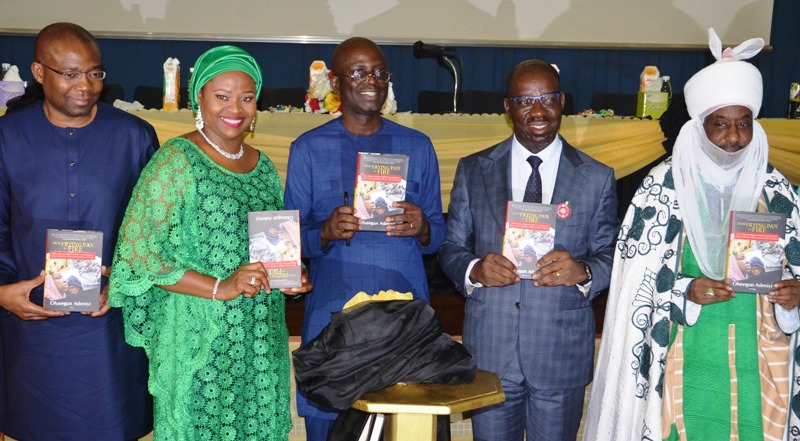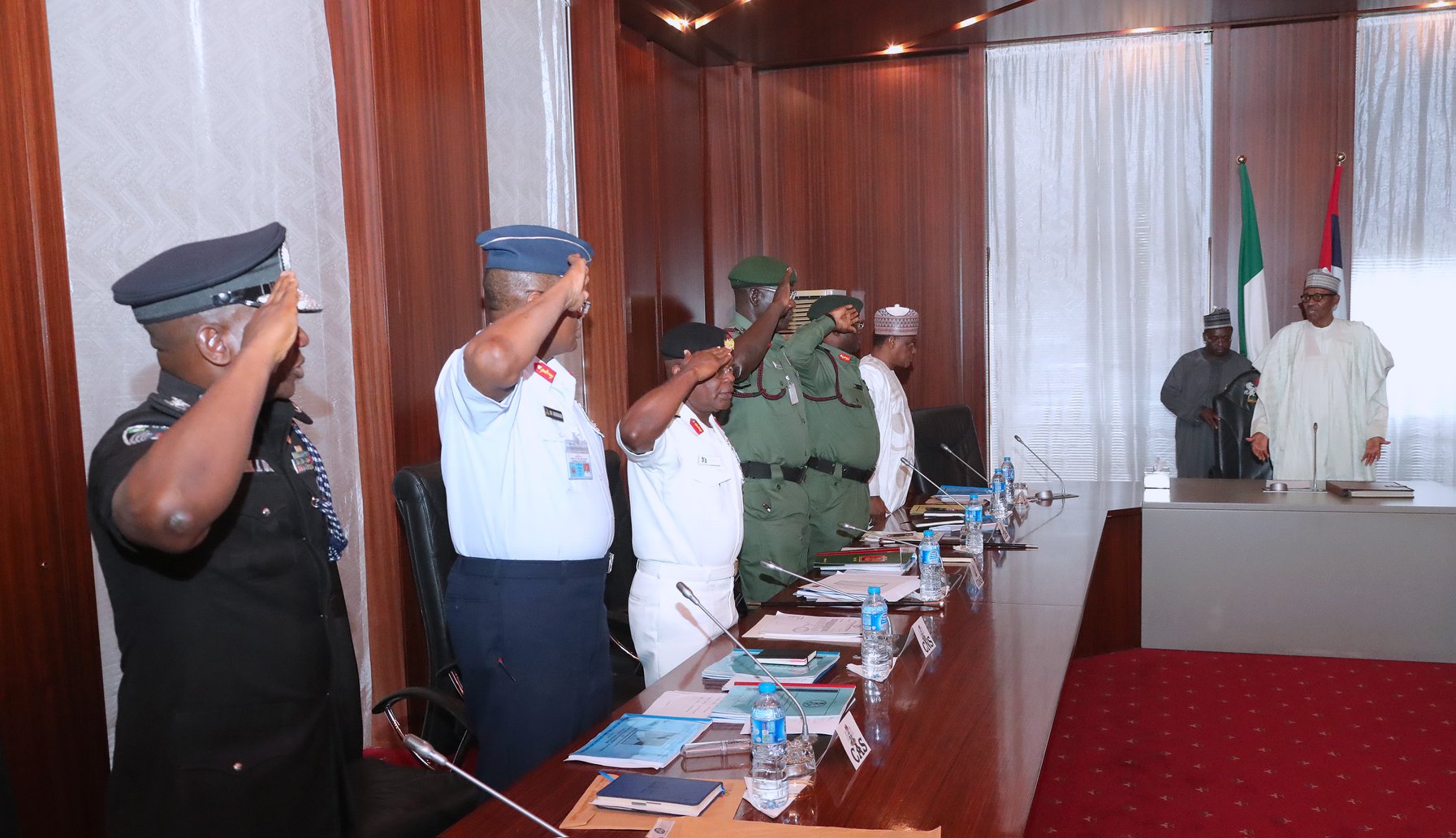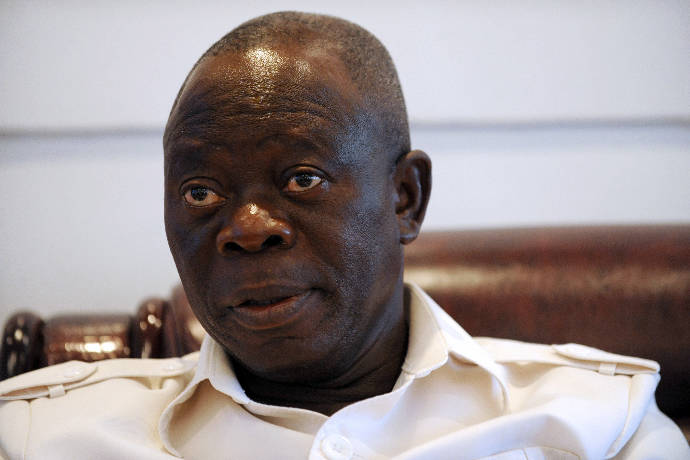Olusegun Adeniyi, celebrated journalist and one of Nigeria’s bestselling authors, has unveiled “From Frying Pan To Fire: How African migrants risk everything in their futile search for a better life in Europe”.
The book is about the plight of migrants who risk their lives on journeys in “search of greener pasture”.
Dignitaries from different parts of the country attended the book launch at Yar’Adua Centre, Abuja, on Thursday.
Among them were Sanusi Lamido, emir of Kano; Godwin Obaseki, governor of Edo state; Waziri Adio, executive secretary of the Nigeria Extractive Industries Transparency Initiative (NEITI); and Aigboje Aig-Imoukhuede, banker and entrepreneur.
Advertisement
Speaking at the event, Sanusi attributed the movement of African migrants to Europe to the global economic inequality and failure of government to create an enabling environment.
He decried the level of poverty on the continent despite the huge resources it is endowed with.
“We cannot have this discourse of global migration without having a discourse on global inequality on globalisation on the economic system we have established,” he said.
Advertisement
“You sit in the metropolitan of the world, bring in capital, buying cheap raw materials, sell finished products, improve your income, become very wealthy on the sweat and savings of third-world and you want to make sure that you lock them out.”
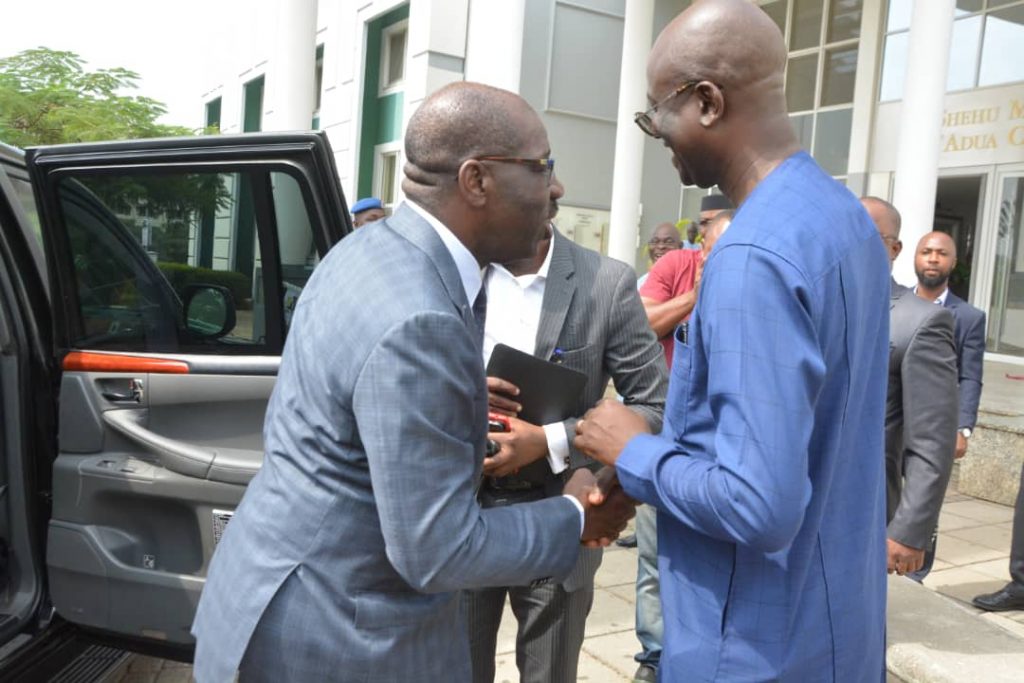
On Nigeria, he said: “The richest man in Africa is from Nigeria and Nigeria is the poverty capital of the world. That is contradiction of the typical world we have created.
“You come to Abuja airports you see a lot of private jets. If you land in Abuja, you will think Nigeria is a rich country. We have beautiful roads, we have bridges. We have everything in Abuja but go a few kilometers away, go to rural areas and see the lives of Nigerians there, that is completely a different world.
“So, we have this discourse on migration and I think it a sad case and we need to deal with that and must also remember that the discourse is not just a humanitarian discourse.”
Advertisement
The monarch tackled President Donald Trump of the United States over his immigration policy.
“We have Donald Trump, when he talks about migration, you will fidget. His grandfather is an immigrant from Germany and his wife certainly only recently got American passport,” he said.
On his part, Obaseki said Edo has accepted the fact that it has the highest percentage of migrants in the country.
He also spoke on how he could not comment on trafficking it in the buildup to the last governorship election in the state because of its implication.
Advertisement
“One issue I was not allowed to talk about during the election is the issue of human trafficking or irregular migration because if I did as a politician, it will cost me my votes,” he said.
“So during electioneering, it was a no go area because of the economy and amount of money that follows this trade.”
Advertisement
Obaseki listed the factors responsible for irregular migration as economic, societal pressure, unemployment and ignorance.
He said his government had taken a series of steps to address the problem, listing them as setting up anti-trafficking agency and re-enacting anti-trafficking laws with stiffer penalty.
Advertisement
The governor said the state had documented 420 returnees so far with their experiences.
He said the returnees are being paid stipends for first 90 days while undergoing vocational and technical training.
Advertisement
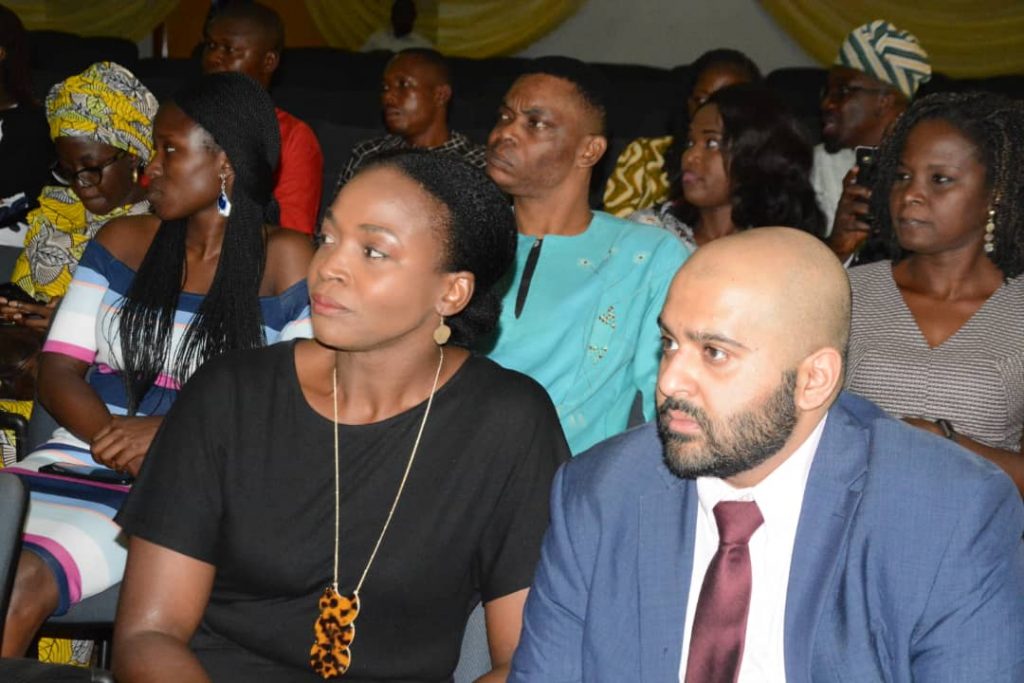
“In Edo, for instance, we have 500 vocational schools that supposed to be training a lot of these girls in hairdressing, cloth-making and beading, but on closer look and examination of what they were , we find that they were hiring and recruiting centers for persons to be trafficked,” he said.
“So we have to close all of them down and now re- registering and ensuring that these vocational centers are real vocational centers.”
Adeniyi said he was compelled to write the book because of the story of his younger brother who was lost for six years as a result of irregular migration between 1993 and 1998.
He said his brother narrated his experience to him at regular intervals.
Adeniyi added that the “excruciating” stories of three Nigerians who were killed in Indonesia in 2005 also motivated him to write the book.
“I could not sleep because he (his brother) said one of those guys was together with him in Mali,” he said.
“He said the guy is a footballer but killed in Indonesia for drug trafficking . He said he was not convinced that the guy actually carried drugs but once you are an irregular migrant and you are caught and you cannot speak their language, they will give you a form to sign and you don’t even know what you are signing yourself into.”
Add a comment
